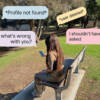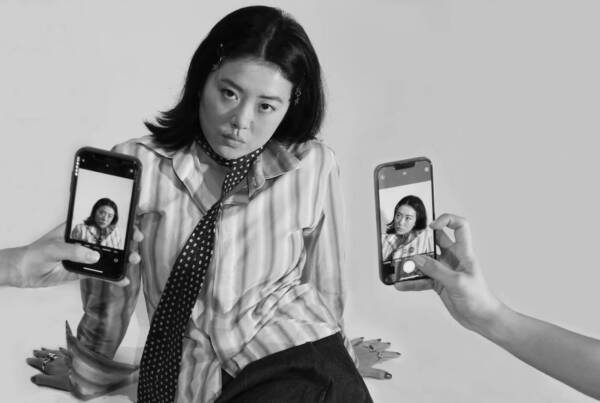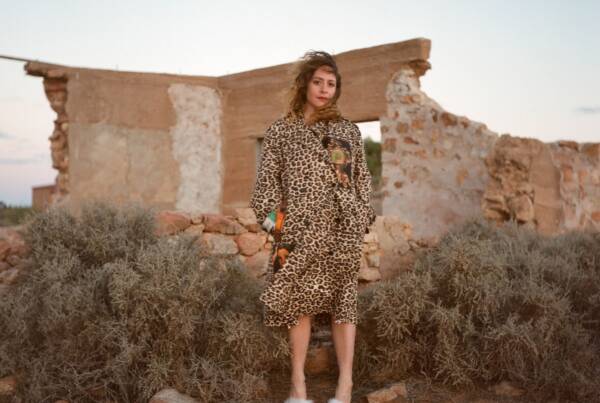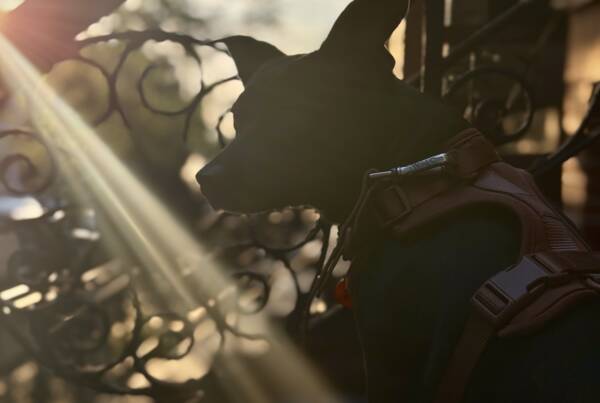Review by Molly Mckew
 Beverly Farmer’s autobiographical novella Alone was first published in 1980, the first of many successful novels by the Australian writer, essayist and poet. The short, engaging work depicts the life of an 18 year-old unemployed writer, Shirley, who lives in a boarding house in the Melbourne suburb of Carlton. The novel is set in the late 1950s, when Carlton was regarded as slumlike and dangerous, not yet the middle to upper class, cosmopolitan hub it is now. Over the novel’s two days and two nights Shirley cycles around the city on a borrowed men’s bike, reads all day in cafes, and at home slugs from bottles of port she keeps hidden under the bed. Her loose, independent lifestyle is somewhat ahead of its time. Shirley lives on the societal fringe, renting a room in a boarding house living alongside newly arrived Greek migrants, estranged, pregnant women and old, alcoholic men with nowhere else to go — all overseen by a chatty house mistress, Mrs O’Toole.
Beverly Farmer’s autobiographical novella Alone was first published in 1980, the first of many successful novels by the Australian writer, essayist and poet. The short, engaging work depicts the life of an 18 year-old unemployed writer, Shirley, who lives in a boarding house in the Melbourne suburb of Carlton. The novel is set in the late 1950s, when Carlton was regarded as slumlike and dangerous, not yet the middle to upper class, cosmopolitan hub it is now. Over the novel’s two days and two nights Shirley cycles around the city on a borrowed men’s bike, reads all day in cafes, and at home slugs from bottles of port she keeps hidden under the bed. Her loose, independent lifestyle is somewhat ahead of its time. Shirley lives on the societal fringe, renting a room in a boarding house living alongside newly arrived Greek migrants, estranged, pregnant women and old, alcoholic men with nowhere else to go — all overseen by a chatty house mistress, Mrs O’Toole.
Written in first person, Farmer deftly takes us into the mind of a teenage girl preoccupied with solitude, romantic obsession, and fantasies of her own literary success. We are aware from the novel’s beginning that Shirley is mourning a loss: it unfolds that she was left by a girlfriend, Catherine, with whom she’d had an intensely loving, but covert, relationship. Past moments of intimacy are returned to throughout the novel’s pages, and Shirley’s heartbreak is made visceral by Farmer’s aching descriptions. It becomes clear that she has given her ex-girlfriend an ultimatum; she will end her life unless Catherine returns by the end of her birthday. Shirley becomes obsessed with images of blood and death. This sets up a chilling, if riveting, waiting.
Towards the end of the novel, Shirley calls her parents from a phone box in a fish and chip shop, late on the evening of her birthday. She has failed to appear at the roast dinner her parents had prepared. Their obvious concern about her lifestyle disrupts the bravado that the reader was offered earlier on. Shirley reassures her parents that she’s fine, that she will visit them soon, that she will send her Aunty Eth a card for her birthday. Afterwards, she visits a cafe she used to frequent with Catherine – but Catherine is not there. On her way home, she sits by the wharf near Flinders Street station and is sexually assaulted by an older man. Shirley returns home on the tram hiding her torn tights from prying eyes.
At home, Mrs O’Toole pays a visit to Shirley’s room. Shirley quickly conceals her wrist cuts and shoves a bottle of port under the bed as O’Toole sits on the end of it. She enquires about Shirely’s wellbeing (at the behest of her parents), and once she’s convinced that Shirley is fine, tells her that a resident who had gone to hospital the day prior with a miscarriage had now died. Shirley simply enquires, “have you ever seen a dead body?”
I will not describe the novel further for fear of spoiling the ending. This remarkable debut novel, despite its years, is a relatable vignette of solitude, instability, passion and pain — a beautifully dark portal into an obsessive teenage mind, and well worth a revisit in this new, 2024 edition.
Alone by Beverley Farmer is out now with Giramondo publishing.







I read this novel as an 18 year old closeted lesbian in 1985 and it nearly did me in. I was living the story, reading the story and suffering a choking, closeted life. There was no apparent place to turn.
Literature offered glimpses of hope but one gleaned rather than gathered. Virginia Woolf’s Mrs Dalloway offered the merest hint of possibility between Clarissa and her best friend Sally, who kissed with a blissful sense of romantic freedom, without judgement. Those were the sorts of crumbs I survived on.
Later, Olivia by Olivia (a memoir of a girls finishing school romance by Dorothy Strachey. Later still, The Price of Salt by Claire Morgan AKA Carol by Patricia Highsmith. Slowly one gathered the books one needed. Shields and implements, to make peace and cultivate a real life for oneself.
What a ride to the present! Coming out still young, finding queer share houses, sharing support and grief and wild clubbing with chosen family, heartbreaking and being heartbroken, finding the right therapist to come to terms with the very real trauma of growing up in what was, at the time, an overwhelmingly heteronormative world. A world in which all other ways of being were either elided or condemned.
For a long time, representations of positive lesbian lives were simply absent from public culture. One had to be incredibly resourceful, resilient and creative to self-sustain, let alone thrive in that world. The change in representation and visibility was infinitesimally slow, but soon a running stream, and now a geyser.
Though happy, indeed thriving now, I still feel joy at every positive image, every capable character, every TV show, every film, every novel that shows women loving women without being abused, killed or killing themselves. It still feels rare and wonderful, like that kiss between Clarissa and Sally.
I’m thankful this novel will receive another look and perhaps give readers a glimpse of times past, though not past enough to call it quits just yet. I would not recommend it to queer readers who are having any difficulty, struggling with depression or seeking affirmation. Best leave it to allies to absorb and reflect.